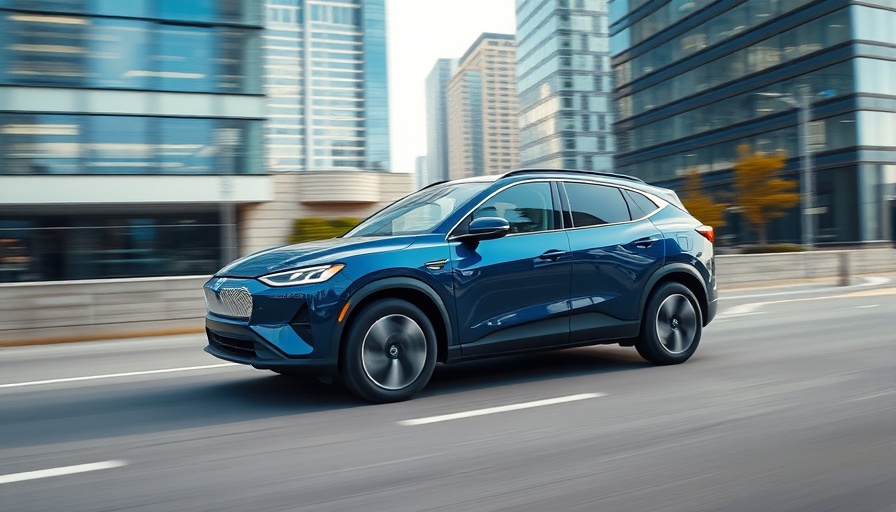
The Shifting Landscape of Electric Vehicle Sales in 2025
In the first quarter of 2025, the U.S. electric vehicle (EV) market experienced a noteworthy rebound, with sales climbing 11.4% compared to the same period last year. However, this surge indicates a significant shift in the dynamics of the EV landscape, particularly as Tesla, a long-time dominant force, faced its most challenging quarter to date.
Tesla: From Leader to Follower?
Tesla's sales fell nearly 9% in the U.S., marking the company's weakest performance since 2021. Analysts from Cox Automotive suggest that the decline can be attributed to a mix of factors, including an aging product lineup and growing public discontent around CEO Elon Musk’s controversial persona. This slump offers a rare glimpse into the vulnerability of even the most recognized brands in an evolving market.
Emergence of New Rivals
As Tesla navigates these turbulent waters, traditional automakers are stepping up their game. Chevrolet saw its EV sales more than double, thanks largely to the popularity of the Blazer EV and the Equinox EV, which offers an impressive range at a competitive price. Alongside, BMW reported a 26% increase, driven by the success of models like the i4 and iX. Interestingly, even Toyota managed to triple sales of its bZ4X SUV, demonstrating that established players are keen to gain traction in the EV segment.
Challenges Ahead for All Automakers
However, not every brand is riding the rising wave. Mercedes-Benz suffered a staggering 58% decrease in EV sales, highlighting that consumer interest can be fickle. Rivian, an early EV startup, also experienced a 36% drop, attributed to supply chain challenges exacerbated by wildfires in California. This varied performance illustrates that while the overall market may be expanding, individual company fortunes aren't guaranteed.
The Regulatory Landscape and Its Implications
Looking ahead, the EV market faces a slew of challenges. Analysts have raised concerns about potential changes in policy that could impact consumer incentives. The possible elimination of the $7,500 federal EV tax credit and increasing tariffs on imported components may suppress demand in the coming months. Moreover, as the political landscape shifts with a Republican-controlled Congress, the rollback of Biden administration incentives could further complicate matters for both manufacturers and consumers.
A Bright Future Despite Uncertain Conditions
Despite these potential hurdles, analysts remain optimistic about the EV market's trajectory. According to Cox Automotive, consumer interest in electric vehicles continues to grow despite the challenges. As they state, "electric-vehicle sales continue to grow at a healthy pace in the U.S. market," suggesting that innovation and emerging player strategies may still keep the sector vibrant.
Conclusion: What’s Next for EV Buyers?
As we delve further into 2025, it's crucial for consumers and industry stakeholders to stay attuned to these evolving trends. Whether you're considering an EV purchase or simply tracking the industry's health, the shifting sands of the market indicate a promising yet challenging road ahead. Keep informed and engage with the developments in the electric vehicle sector, as these changes could significantly impact your future car buying decisions.
 Add Row
Add Row  Add
Add 




Write A Comment